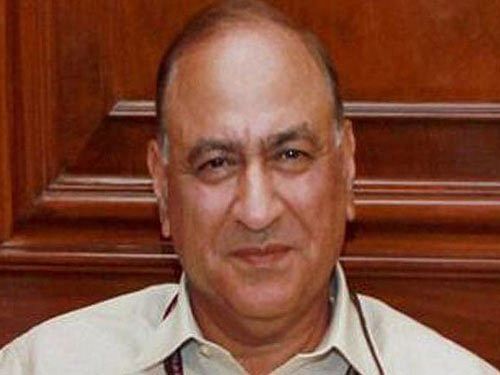
The Central Information Commission has allowed the Cabinet Secretariat to withhold records of deliberations and file notes leading to the resignation of former Union Home Secretary Anil Goswami, who was asked to put down his papers following allegations of his attempts to stall the arrest of a former minister by the CBI.
The panel has based its judgement on a Delhi High Court order in a separate case in which it had held that file notings and deliberations of the Group of Officers or the Disciplinary Authority cannot be disclosed.
The court had, however, allowed information on action taken in relation to complaints against an officer to be provided to an applicant.
Chief Information Commissioner Y K Sinha buttressed his argument to withhold the information citing a Supreme Court verdict, which had held "..professional records, including qualification, performance, evaluation reports, ACRs, disciplinary proceedings, etc. are all personal information... Such personal information is entitled to protection from unwarranted invasion of privacy and conditional access is available when stipulation of larger public interest is satisfied."
Goswami was forced to resign in February 2015 for allegedly trying to stall the arrest of a former Union minister in a case by the CBI.
RTI applicant and IPS officer Anurag Thakur had sought to know from the Cabinet Secretariat the details of action taken on a complaint against Goswami, including communication exchanged between various authorities and file notings.
Not getting a satisfactory response, Thakur appealed before the CIC.
During the hearing, he argued that he wanted the information, including file notings, in public interest "to know the sequence of events which led to the forced resignation of Anil Goswami".
"The subject matter which forms the basis of the instant case is disclosure of note sheets and other correspondence exchanged by various offices in the process of considering the complaint filed against Sri Goswami," Sinha noted.
He said the contentions put forth by Thakur did not establish the larger public interest which would be served by the disclosure of the noting sheet or the file.
"Under the circumstances, the response as provided by the Respondent is found to be justified and does not suffer from any infirmity. As such, there is no requirement to interfere with the same," he ruled.